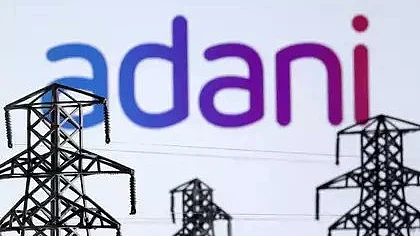Delhi court sets aside order asking journos to remove content on Adani
District judge Ashish Aggarwal rules that earlier injunction granted by civil judge on 6 September had not followed due process

A Delhi district court on Thursday set aside a controversial order that had restrained several journalists from publishing or circulating allegedly defamatory content about Adani Enterprises Limited (AEL), offering temporary relief in a widening battle over free speech.
District judge Ashish Aggarwal ruled that the earlier injunction granted by a civil judge on 6 September had not followed due process, as the defendants were given no opportunity to be heard.
“The impugned order is not sustainable. I allow the appeal and set aside the impugned order without any finding on the merits of the case,” Aggarwal observed, stressing that the provisions of the Civil Procedure Code had not been considered. The matter has now been remanded for a fresh hearing after both sides present their arguments.
The case had been filed by AEL against journalists Ravi Nair, Abir Dasgupta, Ayaskanta Das and Ayush Joshi, alongside veteran reporter Paranjoy Guha Thakurta and several international organisations.
The original order had directed the 10 defendants to remove material from websites, articles and social media posts, and to desist from publishing “unverified and defamatory” material. Another court, meanwhile, has reserved its order on Guha Thakurta’s separate plea seeking similar relief.
What might have remained a narrowly framed defamation dispute has, however, ballooned into a sweeping clampdown across digital platforms. Relying on the ex parte injunction, the ministry of information and broadcasting (MIB) issued takedown notices on 16 September to journalists, news outlets and independent creators, ordering them to remove 138 YouTube videos and 83 Instagram posts deemed critical of Adani.
The notices, sent to Meta and Google alongside individuals, demanded compliance within 36 hours. This extended the reach of the court’s order far beyond its original defendants, pulling in popular YouTubers such as Dhruv Rathee, Ravish Kumar, Abhisar Sharma and Deepak Sharma, as well as satire channels and independent news platforms. Several of the flagged clips were not investigative exposés but satirical skits, commentary or even incidental references to Adani.
The fact that the original injunction was ex parte — issued without hearing those accused — has deepened unease. Legal experts argue that such orders should be sparingly granted in urgent cases, yet here they were swiftly used to justify mass censorship across platforms.
The response has been swift and angry. The Editors Guild of India voiced “deep concern” and described the developments as troubling. It noted that allowing a corporation to determine what counts as defamatory and then forward links for removal gives companies “a de facto censorship tool”, especially when combined with the government’s readiness to enforce takedowns.
Dhanya Rajendran, editor-in-chief of The News Minute and chair of DigiPub India, underlined the dangers of vagueness. “This order does not define what exactly is defamatory. Did the ministry watch the content and decide it was defamatory in its entirety?” she asked, pointing out that many of the targeted videos were satire or news analysis.
The Press Club of India went further, calling it “perhaps the biggest case of using SLAPP [Strategic Litigation Against Public Participation] to gag free press in India.” It highlighted a pattern of corporations obtaining sweeping interim injunctions against critical reporting, which governments then enforce without any meaningful judicial review of the allegations.
Journalists directly affected have been vocal. Ravish Kumar mocked the government’s actions by suggesting 17 September — celebrated as PM Narendra Modi's birthday with much fanfare — be marked as 'Adani Video Takedown Day'. Abhisar Sharma noted that some flagged clips were not even about Adani directly, but merely mentioned his name.
Guha Thakurta, one of the defendants, insisted his work was “verified, factual, fair, balanced, unbiased, and conducted without fear or favour”, pledging to fight the defamation claims vigorously.
Critics argue the implications extend far beyond the journalists and YouTubers named. By enforcing such takedowns, the state is signalling that criticism of politically connected corporations can be swiftly suppressed. For content creators, the message is clear: avoid controversy or risk takedowns and legal jeopardy. For platforms, the incentive is to over-comply rather than risk regulatory ire.
The chilling effect is already evident. Several independent creators have quietly taken down older videos referencing Adani, fearing that even tangential criticism may invite legal action. The spectre of gag orders is thus reshaping not only what gets published but also what gets erased from the public record.
The contrast between Aggarwal’s order setting aside the civil judge’s injunction and the government’s enforcement of the earlier ex parte order is stark. In theory, the judiciary is meant to balance reputation against free expression, ensuring that restrictions are proportionate and only imposed after due hearing. In practice, however, corporate plaintiffs are able to secure sweeping interim relief, while journalists must wage lengthy legal battles simply to have their voices heard.
The Delhi district court’s intervention provides a narrow check against this trend, but unless higher courts establish stricter standards for granting such injunctions, critics warn the tactic will remain a powerful weapon for silencing dissent.
At the heart of the matter lies a larger question: should the machinery of the state be mobilised so vigorously in service of a private corporation’s reputation? The government’s role in enforcing these takedowns — with a speed and efficiency rarely seen in matters of public interest — suggests its priorities lie squarely with protecting corporate interests rather than citizens’ right to information.
With PTI inputs
Follow us on: Facebook, Twitter, Google News, Instagram
Join our official telegram channel (@nationalherald) and stay updated with the latest headlines
